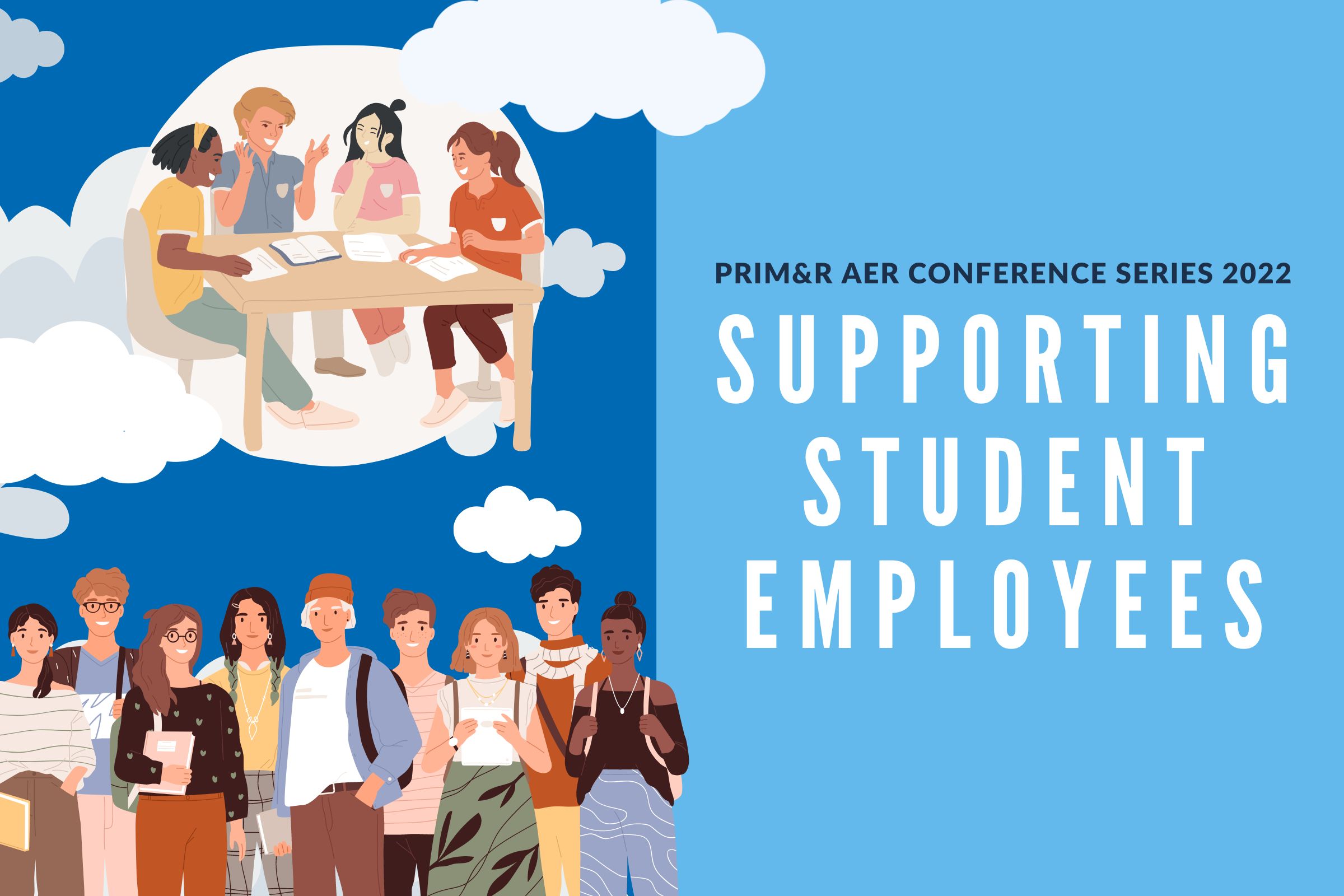The 2022 Advancing Ethical Research Virtual Conference (AER20) is a conference hosted by Public Responsibility in Medicine and Research (PRIM&R) which “works to ensure the highest ethical standards in research by providing education and other professional resources to the research and research oversight community.” The AER22 conference provides valuable networking opportunities for research institutions and regulatory administrators. Additionally, institutions present posters and informational sessions on topics related to research ethics to attendees.
Chloe O’Neill, M.A. & Myra Luna Lucero, Ed.D. delivered a poster presentation entitled, “Leveraging the Benefits of Student Employees in the IRB Office.” which featured our program evaluation on Engaging the Student Worker Program (ESWP). Drawing from the exit surveys and interviews, student employees reported a greater ability to “explain the purpose and overview of the TC IRB'' and students expressed improvement in “...goals and objectives for each week.” Student employees also reported comfort in defining the role of IRB and awareness of their job’s tasks and requirements each week, we identified the following:
- Student employees reported improved knowledge and competency in research compliance
- Self-paced modules are effective and supplement onboarding
- Effective strategies exist for improving employment pipelines in research compliance roles
- Tracking time/task helps refine specific feedback which overall improves the ESW
Understaffed Institutional Review Board (IRB) offices strain deadlines, compromise work/life balance, and impact efficiency. Although student employees cannot make up for full-time employee vacancies, they can alleviate some administrative burdens and, in exchange, students can gain research compliance knowledge that may foster their future interest in an IRB administrative career. Recruiting and onboarding student employees can: (1) alleviate some task burdens, (2) develop peer-leader skills, which can in turn support the student community, and (3) establish mutually beneficial mentor/mentee relationships.
Engaging the Student Worker Program (ESWP)
Hiring full-time IRB staff at competitive pay is challenging because oftentimes there are more jobs than there are qualified candidates. Recruiting, onboarding, and task management for new hires can also take time. Students are not full-time employees, and their priority should always be their schooling, however, an “Engaging the Student Worker Program'' (ESWP) can offset some IRB administrative tasks and free up time for full-time office staff.
Program Evaluation to Assess the ESWP
- Evaluate Teachers College (TC) IRB’s "Engaging the Student Worker Program," hiring, onboarding, and training process
- Analyze how ESWP has evolved and improved over time
- Recommend structures and resources to foster a legacy for future student roles in the office
This program evaluation draws from hiring practices, onboarding processes, time-tracking systems, and exit procedures (as students are typically temporary hires).
Intentionally hiring students means interview questions are research-related (e.g., Anderson & Corneli's book 100 Questions (and Answers) About Research Ethics) and include a practical administrative demonstration aimed at assessing how the student solves problems through data cleaning and spreadsheet editing.
Onboarding includes self-paced modules centered around research compliance basics (e.g., importance of IRBs and human subjects' rights and welfare).
Compare daily time/task data for student positions from 2019 through 2022 and evaluate exit surveys and interviews to foster a legacy for future hires.
Findings
Our program evaluation identified:
- Student employees reported improved knowledge and competency in research compliance
- Self-paced modules are effective and supplement onboarding
- Effective strategies exist for improving employment pipelines in research compliance roles
- Tracking time/task helps refine specific feedback which overall improves the ESWP
Drawing from the exit surveys and interviews, student employees reported a greater ability to “explain the purpose and overview of the TC IRB'' and students expressed improvement in “...goals and objectives for each week.” Student employees also reported comfort in defining the role of IRB and awareness of their job’s tasks and requirements each week.
Discussion
We evaluated our office’s ability to support individual student’s interests and needs to develop their research compliance knowledge and experience.
We framed ESWP around student interests and fostered connections between their research experience and compliance knowledge. Moreover, we worked with related departments to create a part-time professional role for several student employees after graduation.
The exit survey and interview data revealed limitations to the ESWP. For example, student employees suggested structures to better support transitions between employees and full-time staff to manage the workload. Additionally, because students do not work typical 9 a.m. - 5 p.m. schedules, administrators had to design tasks with flexible due dates.
